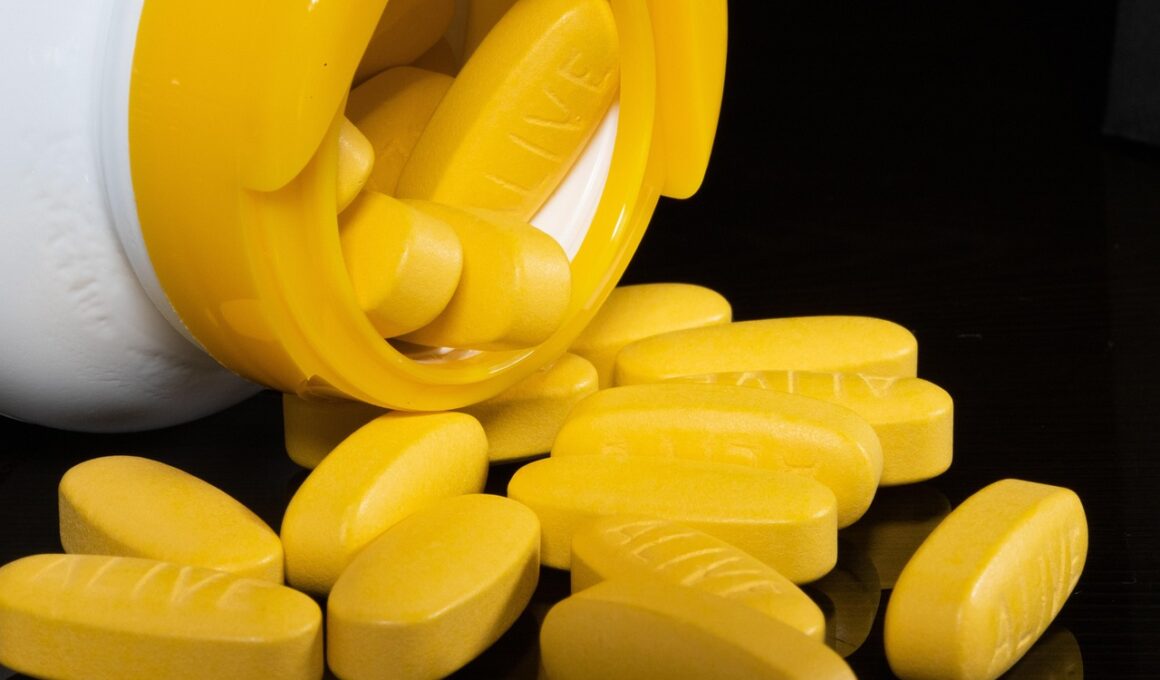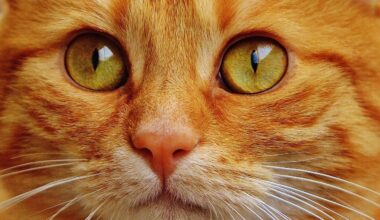The Pros and Cons of Supplements for Cats with Kidney Disease
As cat owners, we often seek the best solutions for our furry friends, especially in the face of health challenges. Kidney disease in cats can be a daunting diagnosis, affecting their overall health and quality of life. Many pet owners turn to supplements as a potential way to help manage symptoms and slow progression. However, it is essential to weigh the pros and cons of these products. The primary concern among caregivers is whether supplements can provide a significant benefit without undue side effects. Understanding what types of supplements are available can aid in making informed decisions. Some common supplements for cats with kidney issues include omega-3 fatty acids, antioxidants, and probiotics. While these may support kidney function, they can also have negatives. Consulting a veterinarian is critical in determining appropriate choices tailored to the individual cat’s health status. Ultimately, monitoring the cat’s response to any supplement is vital, as even natural products can interact with existing medications, necessitating careful observation and time to evaluate their effectiveness.
Another consideration is the source and quality of supplements available on the market. Not all supplements are created equal, and some may lack adequate research backing their claims. Owners should look for products that have undergone rigorous testing and offer transparency about their ingredients. Additionally, supplement effectiveness can vary significantly among individual cats. Just because one product works for one cat doesn’t guarantee the same results for yours. Reading product reviews and seeking recommendations from other cat parents can help in selecting the best option. It is also beneficial to engage with veterinary professionals who specialize in feline health when considering new supplementation. This collaborative approach ensures that any added nutrients align well with the overall treatment plan. Cost is another factor, as high-quality supplements can be expensive. If budget constraints exist, know there are more affordable options that can still offer considerable benefits. Examine the vet’s recommended dietary changes first, as they can sometimes make a more considerable difference without the need for supplements. Open discussions with your vet will ultimately lead to better health outcomes for your pet.
Types of Supplements to Consider
Understanding the different types of supplements available is critical for making informed choices regarding kidney health. Omega-3 fatty acids, often sourced from fish oil, are known to reduce inflammation and support kidney function. These acids help lower blood pressure in the kidneys while also offering cardiovascular benefits. Antioxidants such as Vitamin E and Coenzyme Q10 are believed to protect cells from oxidative stress, potentially improving kidney function. Additionally, probiotics can aid in digestion and strengthen the immune system, which is particularly important for cats on a new diet. Each of these supplements may offer specific benefits, but it’s essential to discuss these with your veterinarian. Your vet can help discern which supplements align with your cat’s specific medical needs. Some cats may even benefit from prescription supplements tailored for kidney issues. Monitoring the duration and results achieved with any supplement helps provide a clear picture of how well it’s functioning. Proper timing when administering these supplements can also enhance their effectiveness, which should be discussed with your veterinarian for optimal results.
Side effects associated with supplement usage can also be a concern for cat owners. While many supplements are generally safe, some may lead to adverse reactions in sensitive animals. Common side effects associated with various supplements can include gastrointestinal upset, changes in appetite, or overall lethargy. If any unusual behavior is observed, immediate consultation with a veterinary professional is recommended. Keeping a close eye on your pet’s behavior after introducing supplements is vital for quick detection of issues. Additionally, interactions between various supplements or between supplements and prescription medications can result in complications that may impact your cat’s health. Knowledge of potential interactions will guide decision-making for safe supplementation. Furthermore, some dietary supplements can potentially cause imbalances or deficiencies in other nutrients, as excesses can be just as harmful as deficiencies. Therefore, meticulous care in administering the correct dosages is paramount. Being attentive to your cat’s health and reporting any changes to the veterinarian will provide a more comprehensive approach to managing kidney disease in cats.
Brand Reputation and Ingredient Quality
When considering supplements for kidney issues, brand reputation and ingredient quality cannot be overlooked. Consumers should thoroughly research companies that produce feline supplements, examining their history, customer feedback, and ingredient sourcing. Well-established brands with a solid track record in producing pet health products are often the safest bets. Ingredients should be verified for purity and efficacy, as many products contain fillers that reduce effectiveness without providing any real benefit. Choosing brands that offer third-party testing can provide assurance regarding product quality. These tests ensure that what is on the label matches the actual contents and adheres to established safety standards. Furthermore, checking for certifications and affiliations with veterinary organizations can bolster confidence in a brand’s credibility. Reading labels carefully to understand what you are introducing into your cat’s diet is crucial. If uncertain about any ingredients, consult with your veterinarian for clarity and what the products will realistically bring to your cat’s health regimen, ideally enhancing quality of life while managing the disease.
Nutritional balance in the cat’s diet is also an essential consideration when introducing supplements. Rather than relying solely on supplements to provide necessary nutrients, fostering a well-rounded diet can be more effective. High-quality commercial diets formulated specifically for kidney health should be prioritized. These diets often contain reduced protein levels, specialized vitamins, and minerals that support kidney function. When combined with necessary supplements, dietary adjustments can yield profound benefits. Gradually transitioning your cat to a targeted diet enriched with appropriate supplements will help avoid gastrointestinal upset and promote overall wellness. Constantly reassessing your cat’s nutritional needs as kidney disease progresses is vital. Changes in health may signal a need for adjustments in diet and supplementation. When pairing supplements with prescribed foods, timing and dosage will maximize nutrient absorption while preventing overload. Frequent veterinary check-ups become vital to keep abreast of the progression of disease and adjust nutritional support accordingly. Finding a balance between diet and supplementation will not only help slow the progress of kidney disease but also enhance your cat’s overall wellbeing.
Conclusion on Cat Supplements
In conclusion, the decision to use supplements for cats with kidney disease should be made carefully and based on informed choices. The potential benefits of supplements, such as omega-3 fatty acids, antioxidants, and probiotics, may support kidney health and improve quality of life. It is essential to consult with a veterinarian before adding any new supplement regimen to ensure safe and appropriate dosages. Monitoring response is crucial for determining effectiveness and any potentially adverse side effects. Exploring the brand reputation and quality of ingredients allows for the selection of safe products that meet your cat’s needs. Careful review of your cat’s diet is also important to maintain balanced nutrition. Supplements can offer supportive care, but they should never replace a well-rounded diet tailored to kidney disease management. With proper attention, dedication, and veterinary support, these efforts can significantly enhance your cat’s health and happiness. As an owner, your commitment to your pet’s well-being will ensure you make informed decisions, ultimately leading to a better quality of life despite chronic kidney issues.
Finally, embracing a holistic approach in managing your cat’s kidney disease entails a combination of nutritional strategies, regular veterinary check-ups, and possibly using supplements. While they can be helpful, supplements should complement existing treatment plans rather than serve as standalone solutions. As with any health-related decisions, ongoing communication with your veterinarian will ensure the best tailored approaches for your specific situation. Establishing a support system within your veterinary team, along with attention to your cat’s day-to-day well-being, will provide the optimal supportive care framework. With dedication and knowledge, owners can significantly improve their cats’ lives, empowering them as caregivers to make informed choices that impact their beloved pets’ health.


